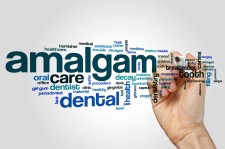Returning Dental Amalgam to the Sacramento Dentistry Group

SACRAMENTO, Calif., January 4, 2018 (Newswire.com) - Many people are now aware that “metal fillings,” used for decades in dentistry, contain an amalgam of mercury, silver and other metals. Experts with the American Dental Association and the Environmental Protection Agency consider this metallic form of mercury safe. Nevertheless, due to patient concerns and a desire to limit the use of mercury in their practice, the Sacramento Dentistry Group uses it as little as possible, in favor of other alternatives. Yet, their dentists recently had a question from a patient on what to do with a piece from an old, broken filling?
Proper Disposal of Dental Amalgam
First of all, do not flush the broken filling, or an old tooth with a filling, down the toilet or sink. This sends the mercury into the wastewater treatment system. As part of the sewage sludge it faces one of the following fates:
- disposal in a landfill, where it may decay during its extended underground life and contribute to groundwater contamination;
- incineration of the sludge definitely releases mercury vapor into the atmosphere;
- application as fertilizer, potentially contaminating plants, animals and groundwater over the many decades beyond its normal lifetime.
Simply tossing the amalgam in the trash faces the consequences mentioned for landfills and incineration, and is therefore also not an option.
The best way to deal with old dental fillings is to bring them into your dentist’s office for recycling when you have your next visit. The metal should be safe until then if it is put in a small, sealed container, like an empty prescription bottle or a sealable plastic bag. Patients that lose a filling completely should be visiting anyway, since they need rapid treatment. The tooth’s pulp is now exposed to decay and likely hurts when it comes in contact with hot, cold or spicy foods.
Do not expect dentists to take non-dental mercury. That should be delivered to local waste disposal agencies for proper recycling. Contact the Sacramento Dentistry Group at 916-538-6900 for further questions on mercury in dentistry. Contact local waste management agencies for questions about household mercury recycling.
Source: Sacramento Dentistry Group
